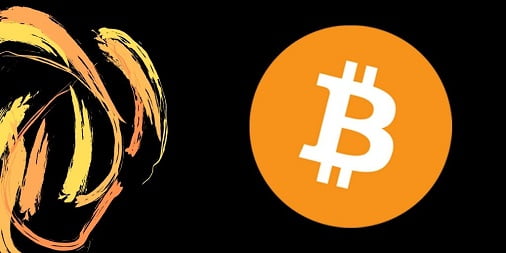Satoshi Nakamoto Quotes

We don’t know much about the alleged inventor of bitcoin Satoshi Nakamoto beyond the quotes he left us on the leading Bitcoin forum: BitcoinTalk. Here are my favorites of the more than 1,000 posts he made over the course of a year. The first quote (which was a headline pulled from a newspaper) was inserted in Bitcoin’s genesis block and is a large part of the reasoning behind bitcoin’s creation:
Jan. 3, 2009: The Times 03/Jan/2009 Chancellor on brink of second bailout for banks.
Jan. 28, 2010: I very much wanted to find some way to include a short message, but the problem is, the whole world would be able to see the message. As much as you may keep reminding people that the message is completely non-private, it would be an accident waiting to happen.
Feb. 14, 2010: If you’re sad about paying (a transaction) fee, you could always turn the tables and run a node yourself and maybe someday rake in a 0.44 fee yourself.
Feb. 14, 2010: I’m sure that in 20 years there will either be very large (bitcoin) transaction volume or no volume.
Feb. 21, 2010: In the absence of a market to establish the price (of bitcoin, estimates) based on production cost is a good guess and a helpful service (thanks). The price of any commodity tends to gravitate toward the production cost. If the price is below cost, then production slows down. If the price is above cost, profit can be made by generating and selling more. At the same time, the increased production would increase the difficulty, pushing the cost of generating towards the price. In later years, when new coin generation is a small percentage of the existing supply, market price will dictate the cost of production more than the other way around.
Feb. 26, 2010: How does everyone feel about the B symbol with the two lines through the outside? Can we live with that as our logo?
May 18, 2010: Creating an account on a website is a lot easier than installing and learning to use software, and a more familiar way of doing it for most people. The only disadvantage is that you have to trust the site, but that’s fine for pocket change amounts for micropayments and misc expenses. It’s an easy way to get started and if you get larger amounts then you can upgrade to the actual bitcoin software.
May 26, 2010: If you’re selling digital goods and services, where you don’t lose much if someone gets a free access, and it can’t be resold for profit, I think you’re fine to accept 0 confirmations. It’s mostly only if you were selling gold or currency that you’d need multiple confirmations.
June 14, 2010: SHA-256 is very strong. It’s not like the incremental step from MD5 to SHA1. It can last several decades unless there’s some massive breakthrough attack.
June 17, 2010: The nature of Bitcoin is such that once version 0.1 was released, the core design was set in stone for the rest of its lifetime.
June 18, 2010: (I’ve been working on bitcoin’s design) since 2007. At some point I became convinced there was a way to do this without any trust required at all and couldn’t resist to keep thinking about it. Much more of the work was designing than coding. Fortunately, so far all the issues raised have been things I previously considered and planned for.
June 18, 2010: (I planned on creating a free bitcoin generator). When it gets too hard for mortals to generate 50BTC, new users could get some coins to play with right away.
June 21, 2010: Lost coins only make everyone else’s coins worth slightly more. Think of it as a donation to everyone.
June 22, 2010: We shouldn’t delay forever until every possible feature is done. There’s always going to be one more thing to do.
June 26, 2010: Like cash, you don’t keep your entire net worth in your pocket, (you keep) walking around money for incidental expenses.
June 27, 2010: For some things newness is a virtue but for this type of software, maturity and stability are important. I don’t want to put my money in something that’s 1.0. 1.0 might be more interesting for a moment, but after that we’re still 1.0 and everyone who comes along thinks we just started. This is the third major release and 1.3 reflects that development history. (0.1, 0.2, 1.3)
July 5, 2010: Sorry to be a wet blanket. Writing a description for (bitcoin) for general audiences is bloody hard. There’s nothing to relate it to.
July 5, 2010: We don’t want to lead with “anonymous (currency)”… (or) “currency outside the reach of any government.” I am definitely not making an such taunt or assertion.
July 8, 2010: It’s hard to imagine the Internet getting segmented airtight. It would have to be a country deliberately and totally cutting itself off from the rest of the world.
July 9, 2010: When someone tries to buy all the world’s supply of a scarce asset, the more they buy the higher the price goes. At some point, it gets too expensive for them to buy any more. It’s great for the people who owned it beforehand because they get to sell it to the corner at crazy high prices. As the price keeps going up and up, some people keep holding out for yet higher prices and refuse to sell. The Hunt brothers famously bankrupted themselves trying to corner the silver market in 1979.
July 14, 2010: There’s no such thing as being 1% towards solving a block. You don’t make progress towards solving it. After working on it for 24 hours, your chances of solving it are equal to what your chances were at the start or at any moment. It’s like trying to flip 37 coins at once and have them all come up heads. Each time you try, your chances of success are the same.
July 15, 2010: That’s surprising that we’ve never heard of that (error) before now. Maybe you’re the first person to ever run it on Vista
July 16, 2010: SHA256 is not going to be broken by Moore’s law computational improvements in our lifetimes. If it’s going to get broken, it’ll be by some breakthrough cracking method. An attack that could so thoroughly vanquish SHA256 to bring it within computationally tractable range has a good chance of clobbering SHA512 too. If we see a weakness in SHA256 coming gradually, we can transition to a new hash function after a certain block number. Everyone would have to upgrade their software by that block number. The new software would keep a new hash of all the old blocks to make sure they’re not replaced with another block with the same old hash.
July 17, 2010: I believe it’ll be possible for a payment processing company to provide as a service the rapid distribution of transactions with good-enough checking in something like 10 seconds or less.
July 18, 2010: (The documentation is) only intended for intrepid programmers who read the sourcecode.
July 20, 2010: Bitcoin is an implementation of Wei Dai‘s b-money proposal on Cypherpunks in 1998 and Nick Szabo’s Bitgold proposal.
July 20, 2010: It would help to condense the (bitcoin Wikipedia) article and make it less promotional sounding as soon as possible. Just letting people know what it is, where it fits into the electronic money space, not trying to convince them that it’s good. They probably want something that just generally identifies what it is, not tries to explain all about how it works.
July 20, 2010: I hope (the bitcoin Wikipedia article) doesn’t get deleted. If it does, it’ll be hard to overcome the presumption. Institutional momentum is to stick with the last decision.
July 25, 2010: Please do these tests on the test network. That’s what it’s for. Thanks.
July 25, 2010: +1 to you for having such a long password that you found this bug.
July 29, 2010: If you don’t believe me or don’t get it, I don’t have time to try to convince you, sorry.
July 29, 2010: Damn that GLIBC_2.11. I thought I’d been careful not to accept any of the updates.
Aug. 5, 2010: While I don’t think Bitcoin is practical for smaller micropayments right now, it will eventually be as storage and bandwidth costs continue to fall. … Whatever size micropayments you need will eventually be practical. I think in 5 or 10 years, the bandwidth and storage will seem trivial.
Aug. 5, 2010: I am not claiming that the network is impervious to DoS attack. I think most P2P networks can be DoS attacked in numerous ways.
Aug. 5, 2010: Free transactions are nice and we can keep it that way if people don’t abuse them.
Aug. 7, 2010: The utility of the exchanges made possible by Bitcoin will far exceed the cost of electricity used. Therefore, not having Bitcoin would be the net waste.
Aug. 7, 2010: Proof-of-work has the nice property that it can be relayed through untrusted middlemen. We don’t have to worry about a chain of custody of communication. It doesn’t matter who tells you a longest chain, the proof-of-work speaks for itself.
Aug. 7, 2010: While (a theoretical escrow) system does not guarantee the parties against loss, it takes the profit out of cheating. … Now, an economist would say that a fraudulent seller could start negotiating, such as “release the money and I’ll give you half of it back”, but at that point, there would be so little trust and so much spite that negotiation is unlikely. Why on earth would the fraudster keep his word and send you half if he’s already breaking his word to steal it? I think for modest amounts, almost everyone would refuse on principle alone.
Aug. 9, 2010: If you’re using electric heat where you live, then your computer’s heat isn’t a waste. It’s equal cost if you generate the heat with your computer. If you have other cheaper heating than electric, then the waste is only the difference in cost. If it’s summer and you’re using A/C, then it’s twice. Bitcoin generation should end up where it’s cheapest. Maybe that will be in cold climates where there’s electric heat, where it would be essentially free.
Aug. 11, 2010: Imagine someone stole something from you. You can’t get it back, but if you could, if it had a kill switch that could be remote triggered, would you do it? Would it be a good thing for thieves to know that everything you own has a kill switch and if they steal it, it’ll be useless to them, although you still lose it too? If they give it back, you can re-activate it. Imagine if gold turned to lead when stolen. If the thief gives it back, it turns to gold again. (With bitcoin), the money is never truly burned. You have the option to release it at any time forever.
Aug. 12, 2010: (If the internet went down, it’s) true, there would probably be someone with a dial-up modem or satellite dish internet. Rarer would be someone who has both that and the wired internet that has the outage, but if it’s a big enough segment to matter, out of a million people there’s bound to be a multi-home geek.
Aug. 13, 2010: With group signatures, it is possible for something to be signed but not know who signed it. As an example, say some unpopular military attack has to be ordered, but nobody wants to go down in history as the one who ordered it. If 10 leaders have private keys, one of them could sign the order and you wouldn’t know who did it.
Aug. 13, 2010: It’s too soon to start junking up the API for backward compatibility at all costs.
Aug. 25, 2010: If I’m not available, any script kiddie can figure out how to add two characters and make a new version that disables the alert system. It would be a temporary inconvenience only.
Aug. 27, 2010: Sorry, I’ve been so busy lately I’ve been skimming messages and I still can’t keep up.
Aug. 27, 2010: Bitcoins have no dividend or potential future dividend, therefore not like a stock. (They’re) more like a collectible or commodity.
Aug. 27, 2010: I think the traditional qualifications for money were written with the assumption that there are so many competing objects in the world that are scarce, an object with the automatic bootstrap of intrinsic value will surely win out over those without intrinsic value. But if there were nothing in the world with intrinsic value that could be used as money, only scarce but no intrinsic value, I think people would still take up something.
Aug. 27, 2010: As a thought experiment, imagine there was a base metal as scarce as gold but with the following properties:
– boring grey in colour
– not a good conductor of electricity
– not particularly strong, but not ductile or easily malleable either
– not useful for any practical or ornamental purpose
and one special, magical property:
– can be transported over a communications channel
If it somehow acquired any value at all for whatever reason, then anyone wanting to transfer wealth over a long distance could buy some, transmit it, and have the recipient sell it.
Maybe it could get an initial value circularly as you’ve suggested, by people foreseeing its potential usefulness for exchange. (I would definitely want some) Maybe collectors, any random reason could spark it.
Sept. 19, 2010: This isn’t the kind of software where we can leave so many unresolved bugs that we need a tracker for them.
Sept. 23, 2010: Bitcoin would be convenient for people who don’t have a credit card or don’t want to use the cards they have, either don’t want the spouse to see it on the bill or don’t trust giving their number to “porn guys”, or afraid of recurring billing.
Sept. 26, 2010: (With two-signature escrow), a cheater can’t win, but it’s still possible for you to lose. It at least takes away the profit motive for cheating you.
Oct. 3, 2010: Sigh… why delete a wallet instead of moving it aside and keeping the old copy just in case? You should never delete a wallet.
Oct. 3, 2010: We need to be vigilant and nip in the bud any misconception that the contents of your block slows down your hash speed. It doesn’t.
Oct. 23, 2010: ECDSA can’t encrypt messages, only sign signatures. It would be unwise to have permanently recorded plaintext messages for everyone to see. It would be an accident waiting to happen. If there’s going to be a message system, it should be a separate system parallel to the bitcoin network. Messages should not be recorded in the block chain. The messages could be signed with the bitcoin address keypairs to prove who they’re from.
Nov. 29, 2010: It seems like you’re inclined to assume everything is wrong more than is actually so.
Dec. 5, 2010: No, don’t “bring it on” (Wikileaks). The project needs to grow gradually so the software can be strengthened along the way. I make this appeal to WikiLeaks not to try to use Bitcoin. Bitcoin is a small beta community in its infancy. You would not stand to get more than pocket change, and the heat you would bring would likely destroy us at this stage.
Dec. 11, 2010: The software is not at all resistant to DoS attack. This is one improvement, but there are still more ways to attack than I can count.
Dec. 11, 2010: It would have been nice to get this attention in any other context (rather than being associated with WikiLeaks). WikiLeaks has kicked the hornet’s nest, and the swarm is headed towards us.
Dec. 10, 2010: Fears about securely buying domains with Bitcoins are a red herring. It’s easy to trade Bitcoins for other non-reputable commodities.
Dec. 12, 2010: We should have a gentleman’s agreement to postpone the GPU arms race as long as we can for the good of the network. It’s much easer to get new users up to speed if they don’t have to worry about GPU drivers and compatibility. It’s nice how anyone with just a CPU can compete fairly equally right now.
Dec. 12, 2010: My head hurts just thinking about that.
Satoshi Nakamoto’s final post
Satoshi’s final post was an update on updates he made for Bitcoin v0.3.19. It’s excerpted below.
Dec. 12, 2010: There’s more work to do on DoS, but I’m doing a quick build of what I have so far in case it’s needed, before venturing into more complex ideas.
Mar. 6, 2014: I am not Dorian Nakamoto.
More quotes attributed to Satoshi Nakamoto
Yes, (we will not find a solution to political problems in cryptography), but we can win a major battle in the arms race and gain a new territory of freedom for several years. Governments are good at cutting off the heads of a centrally controlled networks like Napster, but pure P2P networks like Gnutella and Tor seem to be holding their own.
(Bitcoin is) very attractive to the libertarian viewpoint if we can explain it properly. I’m better with code than with words though.
Relevant news

Top 3 cele mai bune cazinouri din România
Top 3 cele mai bune cazinouri din România Bucurați-vă de numeroase jocuri, bonusuri și opțiuni…

Excellent bitcoin casino gambling pakistan
Excellent Bitcoin Casino Gambling in Pakistan Are you looking for a thrilling and secure way…

Bitcoin casinos Pakistan and crypto casinos Pakistan
Can I safely play Bitcoin casinos Pakistan and crypto casinos Pakistan? As you might imagine,…
Tales of Asgard: Loki’s Fortune slot Play n Go
ABOUT GAME What's the story? A life in Thor’s shadow leaves Loki filled with jealousy. When it comes to the question of who will take their father’s throne, it is Thor or Loki. And we…
Prism of Gems slot
ABOUT GAME PRISM OF GEMS is a 5-reel video slot machine with up to 3087…
Charlie Chance slot
Charlie Chance Unfinished Games If your game round is disrupted, all game information and placed…
